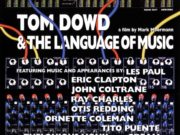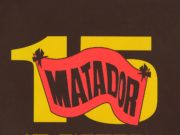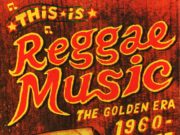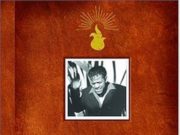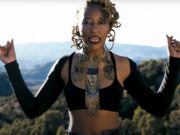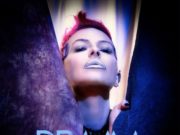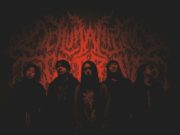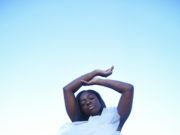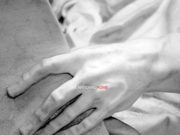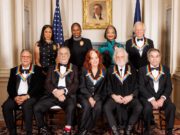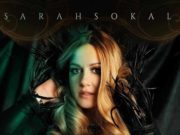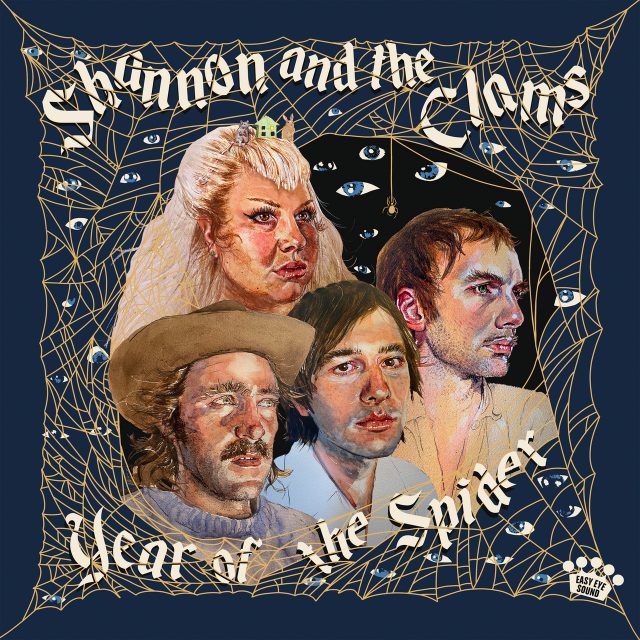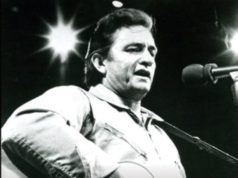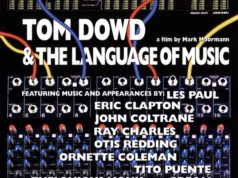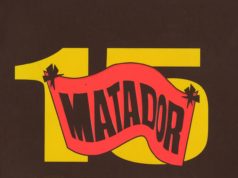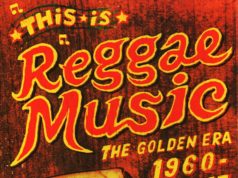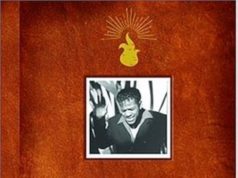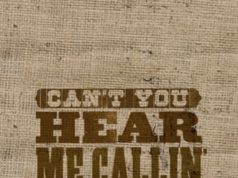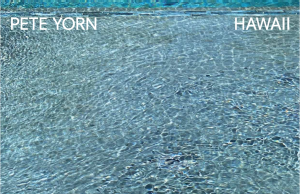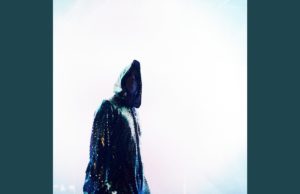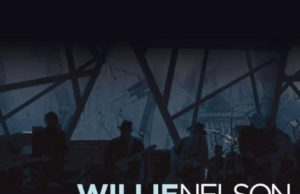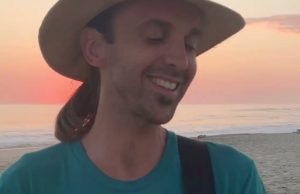THE EDITED PRESS RELEASE: “I am terrified of spiders,” says Shannon Shaw. “My mom always told me that they’re drawn to me. Like, they would drop down and dangle in my face as a baby, or they’d get in my bed.” But the powerhouse singer-bassist of retro-rock band Shannon & The Clams had bigger fears when she went to an astrologer two years ago. Shaw was at an emotional tipping point — willing to try anything — because everything she loved was falling apart.
“It felt like the end of an era,” Shaw says. Things began to unravel in 2016 with the tragic Ghost Ship warehouse fire in the Clams’ DIY community in Oakland. In 2018, the California wildfires in Napa almost caused her parents to evacuate their homes. In 2019, a lurking intruder drove Shaw out of the beloved apartment she’d lived in for 14 years. And then, right as her band was getting invited on big tours with bands like Greta Van Fleet and The Black Keys, her father was diagnosed with cancer. “The idea of leaving my family was agonizing — it was torture,” Shaw says.
The astrologer told her to summon Durga, a Hindu goddess who holds a weapon in each of her eight arms. Shaw saw the connection. “The symbolism of the spider made a full turn in an interesting way,” she says. “I was getting protection from the thing I feared the most.” Plus, she says with a laugh, “Spiders destroy the bullshit bugs. Like mosquitoes. Who needs ‘em?”
Year Of The Spider, the band’s sixth studio album, rages against death and disease with the power of a thousand angry Ronettes. Songs like All Of My Cryin’, Mary, Don’t Go and Year Of The Spider, pulse with girl-group elegance and punk ferocity. On a Clams record, you always get both.
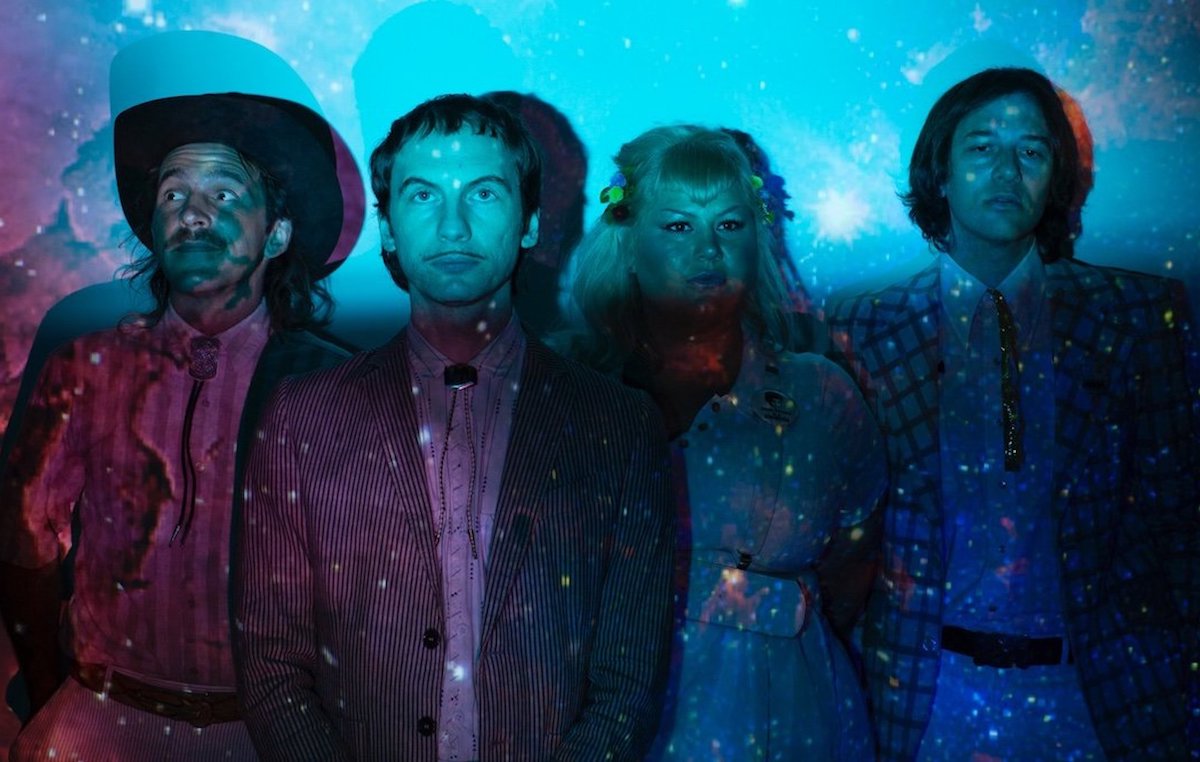
That harsh/soft balance often comes down to Clams keyboardist Will Sprott. “Different keyboards lend themselves to different tones,” Sprott says, “a Rhodes [piano] is more soft and bell-like, whereas a Wurlitzer has these chunky, abrasive bites. So when I’m deciding which instrument to play on a song, I’m thinking, what does the song make you feel? What do you want it to communicate? It’s like, do you want this organ to scream at you or soothe you?” On the album opener, it was a little bit of both. Do I Wanna Stay is a slow tango between Shaw’s voice and Sprott’s piano that builds to a break point when Shaw rasps, “I dream at night…” sounding like someone whittled Brenda Lee into a shiv.
“We went line by line with a fine-toothed comb to make sure the instrumentation matched each scene, almost like a movie,” Sprott says, adding, “That’s one thing about having Dan [Auerbach] as your producer — he is really good at seeing an overall vision of the sound — knowing when and where to add or remove certain layers.” Drummer Nate Mahan agreed, saying “Stay” was a true collaboration. “Shannon had a very unique idea about the tempo of that song that we had to work out with Dan … The timing took us quite a while to get right, but I’m really proud of how it came out.”
When Mahan moved to Oakland in 2007, he was a fan of the band before he joined. “I was in a lot of improvisational and noise bands in a city that has every micro-genre you can imagine floating around … Shannon and the Clams stuck out to me because they had great songs with great singers, which I thought that really lacking in Oakland at the time.” Mahan’s intuitive approach shines through on songs with dense imagery like, Mary Don’t Go — one of Shaw and Auerbach’s favorites. “I wanted to leave space for the words and pull back [on the drums],” Mahan says. “When you slow the pace, the words can feel more powerful.”
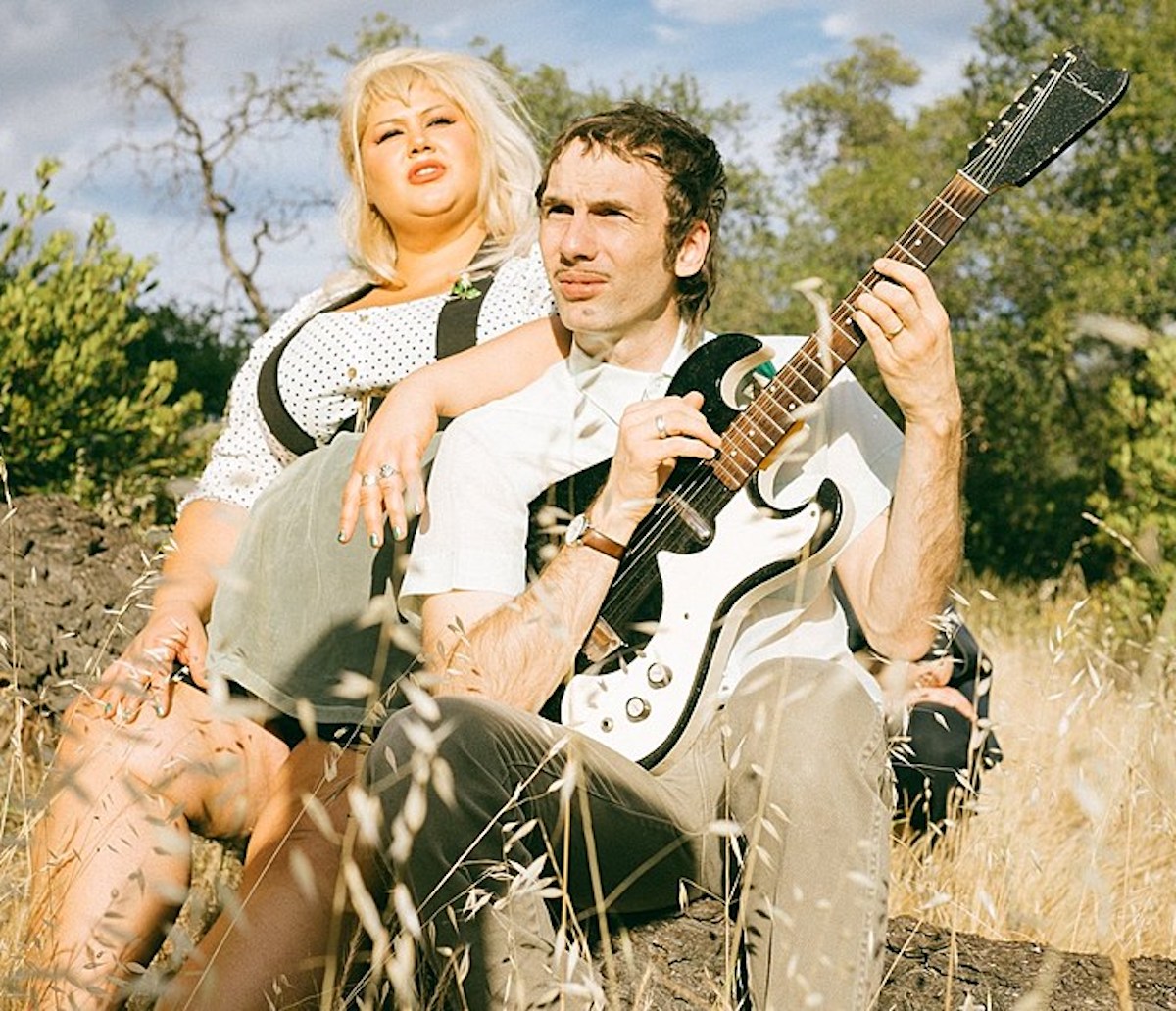
The other source of the Clams’ signature sound comes from the decade-long creative partnership between Shaw and Clams’ guitarist Cody Blanchard. In I Need You Bad, their voices lock into bewitching minor chords. “It’s like a zipper when we sing together,” Shaw said, “I think we have a blood harmony, though we’re not related.” Bands that do have blood harmonies — The Everly Brothers, The Bee Gees — are major musical touchstones for them. But unlike those groups, Shaw, Blanchard are close friends. They live 15 minutes away from each other and when both are in town, will rehearse in the goat shed turned recording studio that Blanchard built in his yard.
Blanchard mixed Spider at Auerbach’s Easy Eye Sound Studios the same week tornadoes devastated parts of Nashville right before the COVID-19 shutdowns in early 2020. He also wrote and sings lead on roughly half the songs on Spider. His songs, like Flowers Will Return and In The Hills, In The Pines, have swelling pop arrangements and a mysteriously sparse falsetto, reminiscent of bands like The Hollies and The Association.
As a songwriter, Blanchard said he can get neurotic, so he tried Dolly Parton’s trick: writing songs from another person’s point of view. It worked, yielding some of Spider’s darkest songs: the howling Crawl, which has a roiling hard-rock guitar (“that was really fun — just a classic, rippin’ ’70s guitar solo”) and the album’s first single, Midnight Wine, a thundering baroque-pop number that was inspired by friends and people in the Oakland arts community who died of drug overdoses over the last few years. “I was thinking specifically of the feeling of alienation,” said Blanchard. “Where it feels like nothing in society works for you. The only thing that makes sense is to get fucked up to the point where you don’t care if you die or not because life is too difficult and bleak.”
Spider ends with the slinky Motownesque, Vanishing. Shaw dons her spiritual spider armor once more, singing directly and poignantly to her father (who is doing well, she said.) At first, Shaw wondered if the lyrics were too personal to put on the record. “It’s very emotional, very tender,” she said. “I also had these ideas that made no sense, like having the weird call-and-response, but we made it work so it was one of those songs that gave me the chance to grow.”



